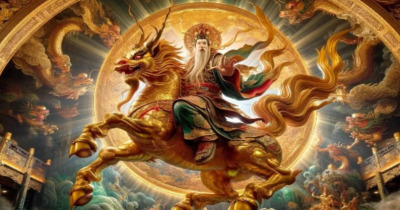This Is the No. 1 Predictor of Career Success, According to Science

It has been over three years since Steve Jobs died.
Since then, books have been written and movies have beenmade.
Each has celebrated his legacy and aimed to share the secrets heused to build the largest company in the world; things likeattention to detail, attracting world-class talent and holding themto high standards.
We think we understand what caused his success.
We don』t.
We dismiss usable principles of success by labeling them aspersonality quirks.
What』s often missed is the paradoxical interplay of two of hisseemingly opposite qualities; maniacal focus and insatiablecuriosity. These weren』t just two random strengths. They may havebeen his most important as they helped lead to everything else.
Jobs』 curiosity fueled his passion and provided him with accessto unique insights, skills, values, and world-class people whocomplemented his own skill set. Job』s focus brought those to bearin the world of personal electronics.
I don』t just say this as as someone who has devoured practicallyevery article, interview, and book featuring him.
I say this as someone who has interviewed many of the world』stop network scientists on a quest to understand how networks createcompetitive advantage in business and careers.
The Simple Variable That Explains What Really Causes CareerSuccess
In December of 2013, I interviewed one of the world』s topnetwork scientists, Ron Burt. During it, he shared a chart thatcompletely flipped my understanding of success. Here is asimplified version:
The bottom line? According to multiple, peer-reviewed studies,simply being in an open network instead of a closed one is the bestpredictor of career success.
In the chart, the further to the right you go toward a closednetwork, the more you repeatedly hear the same ideas, whichreaffirm what you already believe. The further left you go towardan open network, the more you』re exposed to new ideas. People tothe left are significantly more successful than those to theright.
In fact, the study shows that half of the predicted differencein career success (i.e., promotion, compensation, industryrecognition) is due to this one variable.
Do you ever have moments where you hear something so compellingthat you need to know more, yet so crazy that you』d have to let goof some of your core beliefs in order to accept the idea?
This was one of those moments for me. Never in all of the booksI had read on self-help, career success, business, or Steve Jobshad I come across this idea.
I wondered, 「How is it possible that the structure of one』snetwork could be such a powerful predictor for career success?」
How a Closed Network Impacts Your Career
To understand the power of open networks, it』s important tounderstand their opposite.
Most people spend their careers in closed networks; networks ofpeople who already know each other. People often stay in the sameindustry, the same religion, and the same political party. In aclosed network, it』s easier to get things done because you』ve builtup trust, and you know all the shorthand terms and unspoken rules.It』s comfortable because the group converges on the same ways ofseeing the world that confirm your own.
To understand why people spend most of their time in closednetworks, consider what happens when a group of random strangers isthrown together:
David Rock, the founder of the Neuroleadership Institute, thetop organization helping leaders through neuroscience research,explains the process well:
We』ve evolved to put people in our ingroup and outgroup. We putmost people in our outgroup and a few people in our ingroup. Itdetermines whether we care about others. It determines whether wesupport or attack them. The process is a byproduct of ourevolutionary history where we lived in small groups and strangerswe didn』t know well weren』t to be trusted.
By understanding this process, we can begin to understand whythe world is the way it is. We understand why Democrats andRepublicans can』t pass bills with obvious benefits to society. Weunderstand why religions have gone to war over history. It helps usunderstand why we have bubbles, panics, and fads.
The Surprising Power and Pain of Open Networks
People in open networks have unique challenges andopportunities. Because they』re part of multiple groups, they haveunique relationships, experiences, and knowledge that other peoplein their groups don』t.
This is challenging in that it can lead to feeling like anoutsider as a result of being misunderstood and under-appreciatedbecause few people understand why you think the way you do. It isalso challenging, because it requires assimilating different andconflicting perspectives into one worldview.
In one of my all-time favorite movies, The Matrix, the maincharacter, Neo, is exposed to a completely new world. Once he is,he can』t go back. He』s an outsider in the new group, and he』s anoutsider in his old life. He』s had an experience that everyone he』sever met would never understand. This same phenomenon happens whenwe enter new worlds of people.
On the other hand, having an open network is a huge opportunityin a few ways:
More accurate view of the world. It provides them with theability to pull information from diverse clusters so errors cancelthemselves out.Research by Philip Tetlock shows that people withopen networks are better forecasters than people with closednetworks.
Ability to control the timing of information sharing. While theymay not be the first to hear information, they can be the first tointroduce information to another cluster. As a result, they canleverage the first move advantage.
Ability to serve as a translator / connector between groups.They can create value by serving as an intermediary and connectingtwo people or organizations who can help each other who wouldn』tnormally run into each other.
More breakthrough ideas. Brian Uzzi, Professor of Leadership andOrganizational Change at the Kellogg School of Management,performed a landmark study where he delved into the tens ofmillions of academic studies throughout history. He compared theirresults by the number of citations (links from other researchpapers) they received and the other papers they referenced. Afascinating pattern emerged. The top performing studies hadreferences that were 90% conventional and 10% atypical (i.e.,pulling from other fields). This rule has held constant over timeand across fields. People with open networks are more easily ableto create atypical combinations.
The Revisionist Timeline of Steve Jobs Success
As a result of pursuing his curiosity in different fieldsthroughout his life, Steve Jobs developed an extremely uniqueperspective, skill set, and network; one that no one else in thecomputer industry had. He turned these unique advantages into thelargest company in the world by having a razor sharp focus. WithinApple, he cut out people, products, and systems that weren』tworld-class.
Many are quick to label parts of Steve Jobs』 life as the 『lost』or 『wilderness』 years. However, when we view his life inretrospect, we see that his diversions were critical to hissuccess.
What is labeled as the magic of Steve Jobs or the quirks of hischaracter become replicable principles we can all follow.
It is from this vantage point that we can begin to understandthe following quote from a Steve Jobs interview for Wired in1995:
Creativity is just connecting things. When you ask creativepeople how they did something, they feel a little guilty becausethey didn』t really do it, they just saw something.
It seemed obvious to them after a while. That』s because theywere able to connect experiences they』ve had and synthesize newthings. And the reason they were able to do that was that they』vehad more experiences or they have thought more about theirexperiences than other people.
Unfortunately, that』s too rare a commodity. A lot of people inour industry haven』t had very diverse experiences.
So they don』t have enough dots to connect, and they end up withvery linear solutions without a broad perspective on the problem.The broader one』s understanding of the human experience, the betterdesign we will have.
Stay Hungry. Stay Foolish.
Throughout human history, all societies including our own havecreated myths that share one common element, the hero』sjourney.
Here』s what the journey looks like according to Joseph Campbell,the originator of the term…
Things are going great. You feel normal and fit in. Thensomething, happens and you change. You start to feel like anoutsider in your own culture. You hide parts of yourself to fit in,but that doesn』t help. You feel called to leave and fulfill part ofyourself, but that has a lot of uncertainty. So, you hesitate atfirst.
Finally, you take the plunge. You go through difficult times asyou』re learning to navigate the new world. Finally, you overcomethe challenges. Then, you go back to your old culture and have ahuge impact because you share the unique insights you』velearned.
The hero』s journey myth is embedded in everything from oursociety』s classic movies (i.e., Star Wars) to the heroes we glorify(i.e., Steve Jobs), because it hits on core parts of the humanexperience.
The field of network science shows us two things. (1) The hero』sjourney is the blueprint for creating career success. (2) We canall be heroes. It just takes a little faith as you follow yourheart and curiosity into unknown worlds. As Steve Jobs said, 「 Youcan』t connect the dots looking forward; you can only connect themlooking backwards. So you have to trust that the dots will somehowconnect in your future.」












